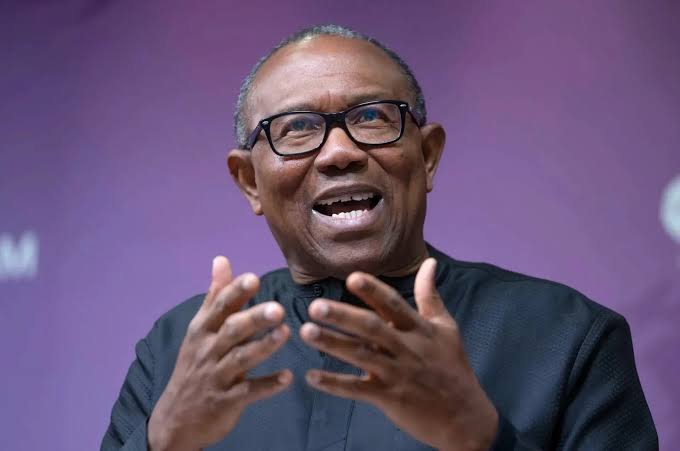National
Peter Obi Criticizes National Assembly Voice Vote, Claims True Democracy Is Absent in Nigeria

Peter Obi, the presidential candidate of the Labour Party in the 2023 general election, has criticized the recent voice vote held by the National Assembly, stating that it highlights the absence of true democracy in Nigeria. Obi expressed his dissatisfaction with the process, asserting that it failed to reflect genuine democratic principles.
The voice vote took place during a session of the National Assembly on a matter of national significance. Obi argued that such a method of decision-making lacks transparency and prevents accountability, as it makes it difficult to ascertain individual lawmakers’ positions on critical issues. He contended that democracy thrives on openness and accountability, and the use of voice votes undermines these principles.
Obi’s remarks came in response to growing concerns over the conduct of legislative processes in Nigeria. Critics, including Obi, believe that the frequent use of voice votes in deciding crucial matters allows lawmakers to avoid taking clear positions, which in turn shields them from public scrutiny. According to Obi, this practice denies Nigerians the opportunity to know where their representatives stand on key national issues.
The former Anambra State governor further emphasized that a truly democratic system requires that elected officials are held accountable by their constituents. He insisted that recorded voting, where each legislator’s vote is documented and made public, is a more transparent and democratic method. Obi maintained that this would ensure lawmakers are answerable to the people they represent, fostering greater trust in the democratic process.
Obi also called on Nigerians to demand greater transparency from their leaders and institutions. He urged citizens to hold their representatives accountable and push for reforms that promote openness in legislative proceedings. In his view, only through such measures can Nigeria strengthen its democratic institutions and ensure that the voices of its citizens are genuinely represented.
His comments have sparked widespread debate, with many Nigerians sharing similar sentiments about the need for greater accountability in government. Some lawmakers, however, defended the use of voice votes, arguing that it is a legitimate parliamentary procedure used in many democracies around the world. They contended that the method is efficient and expedites decision-making, especially during sessions with numerous items on the agenda.
Despite these defenses, Obi maintained that Nigeria’s democratic system must evolve to embrace more transparent practices. He reiterated that accountability is crucial for fostering public trust and ensuring that democracy serves its true purpose — representing the will of the people.
The voice vote in question has now become a symbol of the broader debate surrounding democratic practices in Nigeria. Obi’s remarks have added momentum to the ongoing conversation about reforming the country’s legislative processes, with calls for greater openness growing louder.
As the discussion continues, Obi’s stance has resonated with many Nigerians who feel disconnected from the decision-making processes in government. The debate has reignited conversations about strengthening democratic institutions and ensuring that the people’s voices are not only heard but also respected and reflected in legislative decisions.
